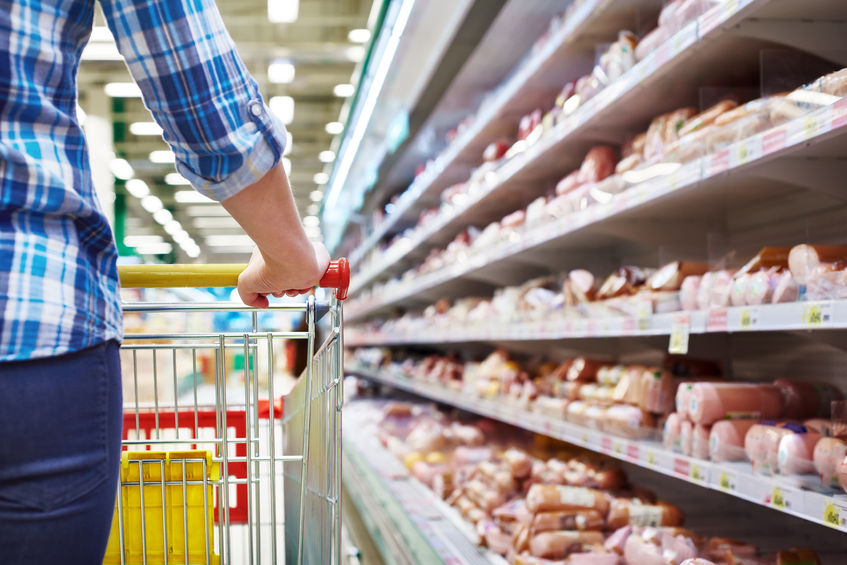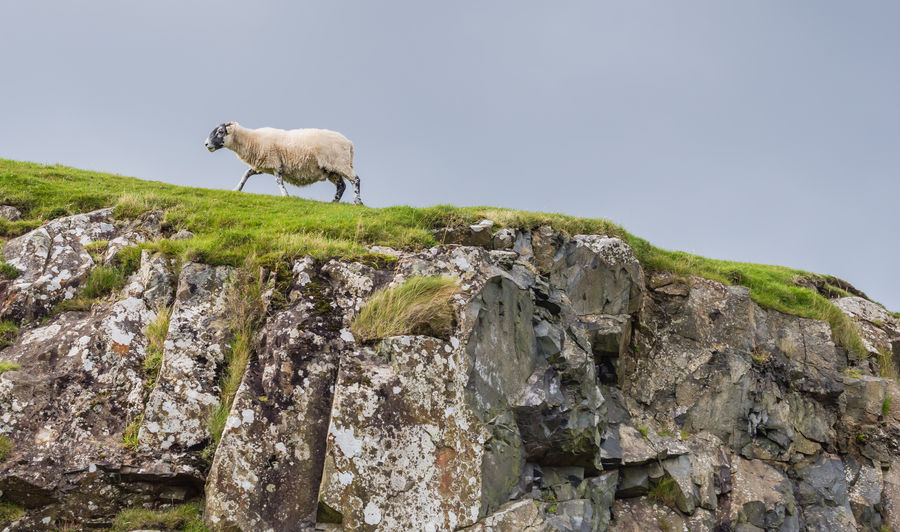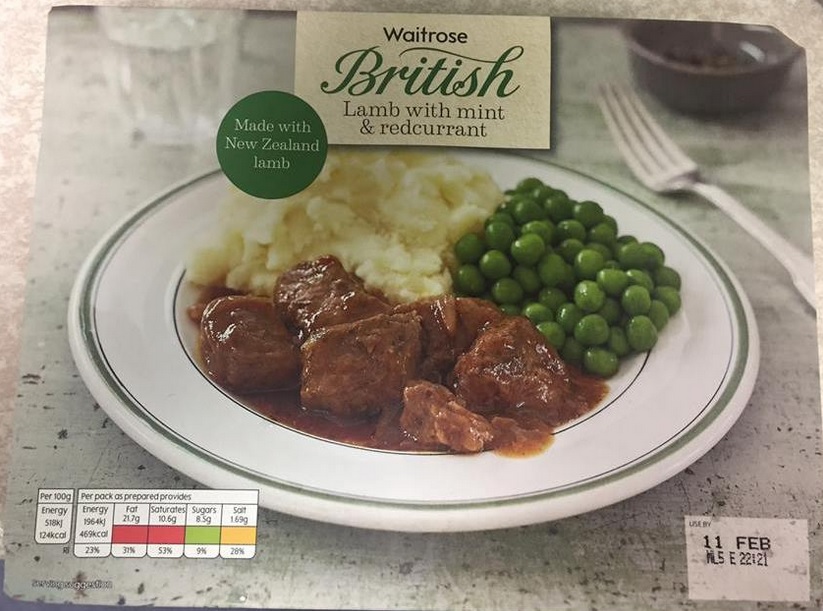
The leader of Britain's sheep farmers has called on retailers to back the British economy by supporting home-grown lamb.
Phil Stocker, chief executive of the National Sheep Association (NSA), has accused retailers of talking up their support for British farmers whilst importing foreign meat.
"They are all doing it. They all say how committed they are to UK producers but five minutes later they are doing something contrary," said Mr Stocker.
He has called on major retailers to get behind the United Kingdom's domestic supply chain.
Phil Stocker's plea came after National Farmers Union (NFU) criticised supermarket group, Morrisons, for promoting Australian and New Zealand lamb.
The retailer boasts that all Morrisons branded fresh lamb is British. However, the NFU criticised the supermarket chain for a recent promotion of Southern Hemisphere lamb.

'Real shame'
NFU livestock board chairman Charles Sercombe accepted that Morrisons had traditionally been a strong supporter of the UK livestock industry, but he said he was disappointed about the recent promotion of Australian and New Zealand lamb.
“We appreciate that Morrisons purchases around 750,000 lambs every year, but in our view it’s a real shame that the retailer is now acting contrary to its commitments to consumers," he said.
“We also have concerns that these imported products are being placed near British messaging at the point of sale, potentially leaving shoppers confused about the origin of the product they are purchasing. We want shoppers to be able to buy British food confidently.
“There is obviously a demand for British lamb, so I would urge Morrisons to be clear to customers about what its commitments are.”
Morrisons issued a statement saying: “As has always been the case, all year round and in all stores, 100 per cent of Morrisons branded fresh lamb is British. As we have in previous years, we will run a handful of non-Morrisons branded promotions between Christmas and Easter when we sell a small amount of non-British lamb. This is because a large volume of one cut (the leg) is being sold out of balance to the rest of the carcass. Again, the country of origin is very clearly labelled and the product is sold away from the counter.”
Committent to British
Morrisons is planning to further increase its commitment to British farming.
The supermarket group has launched a campaign to recruit more than 200 new UK suppliers. It is holding a series of recruitment events around the country between March and July.

Phil Stocker said now that the United Kingdom was set to leave the European Union it was more important than ever that the UK supply chain worked together for the benefit of the country's economy.
Mr Stocker has previously expressed concern that free trade agreements with countries like Australia could be damaging to the British sheep industry if foreign imports were allowed completely free access to our market.
Following the referendum vote in favour of Brexit, Mr Stocker told FarmingUK the NSA was “seriously alarmed” at the possibility of a completely free trade deal with a country that was a global sheep meat exporter.
He said such a deal could be “catastrophic” for British sheep farmers.
“NSA understands Australia has been pushing to increase its EU quota for many years now, so there is no doubt it would send larger amounts of sheep meat to Europe and the UK given the opportunity,” he said.
“The UK sheep sector is already suffering unacceptably high levels of imports of New Zealand lamb, much of which is sourced by retailers at times of the year when UK product is in plentiful supply. We would be keen to see an outcome of Brexit being tighter controls on New Zealand lamb being allowed into this country, and we certainly need to avoid making the situation worse by allowing Australian product to head our way, too.”
UK as a 'prime destination'
Imports of Australian sheep meat are currently limited by EU quota to just under 20,000 tonnes each year.
The NSA says that, with annual production of more than 700,000 tonnes, Australia is very keen to open up more trade opportunities and, says the NSA, it sees the UK as a prime destination for its lamb and mutton products.
Phil Stocker said there were numerous examples of retailers expressing their support for British farmers yet opting to source foreign imports.
He pointed to Waitrose, whose "British" shepherd's pie was found to contain lamb from New Zealand. Waitrose recently re-branded its ready meals to make clear where the meat is from.
Mr Stocker said Waitrose had been offering money-off vouchers, but only on New Zealand lamb, and he said Asda had been selling lamb mince that was a mixture of British and New Zealand meat.
"For all we know it could be one per cent UK lamb and 99 per cent New Zealand lamb," he said.
"There is a lot of confusion amongst retailers," he said. "They are all doing it. They all say how committed they are to UK producers but five minutes later they are doing something contrary. Someone needs to pull the whole supply chain together and create a vision for the future and support that vision. We need retailers to do all they can to support the British supply chain."
Opened for cheap imports
The NSA chief executive remains concerned that the UK may be opened up to cheap foreign imports in the wake of the country's departure from the EU.
The Government's Trade and Industry Secretary, Liam Fox, has promised to have a series of free trade agreements ready to sign once the UK leaves the European Union.
The fear is that British-produced high welfare, high standard food will be left exposed to cheap imports if trade is completely open.
At the Egg and Poultry Industry Conference (EPIC) in November, Farming Minister George Eustice said he wanted the UK to be "the international exemplar when it comes to animal health and welfare".
He said: "I would like us to pioneer new policies, new ways of working, to create a policy that is the envy of the world. I want us to get to a place where a decade from now the rest of the world will want to emulate policies that we put in place," he said. This message has since been repeated by Environment Secretary Andrea Leadsom.
However, the Farming Minister, has failed to commit to placing any controls on imports of lower welfare food. He said at EPIC: "I am mindful that if we want to open free trade agreements with other parts of the world, including say the US, we have got to recognise the fact that they have got lower standards of animal welfare."
Phil Shiner said this approach made no sense. "It's illogical talking about British high welfare but not protecting our market," he told FarmingUK.
Farming leaders across many farming sectors have expressed similar concerns about the impact of completely open trade on British farming.
